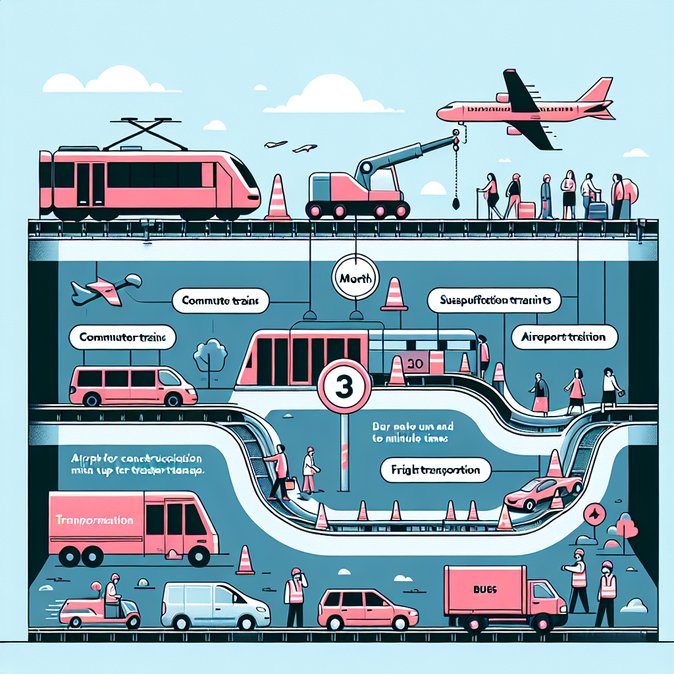
Austria’s state railway ÖBB began extensive track and bridge renewal on the busy Vienna Hauptbahnhof–Neusiedl am See line in the early hours of 27 October 2025. The €42-million project, running until 24 November, requires full closures of several sections and rail-replacement buses, affecting both commuter and regional services to Burgenland and the Hungarian border.
Key impacts include the suspension of all trains between Wulkaprodersdorf and Neusiedl from 27–31 October and between Neusiedl and Bruck an der Leitha until 24 November. Long-distance Railjet and Eurocity services are rerouted via the Southern Line, adding up to 25 minutes of travel time. ÖBB has deployed 40 coaches per day for substitute bus operations and recommends that passengers allow at least 30 minutes extra when travelling to Vienna Airport.
The corridor is a vital artery for daily cross-border commuters from Slovakia and Hungary as well as for freight flows from the Balkans to Central Europe. Logistics operators have been advised to anticipate temporary capacity constraints and to shift time-critical shipments to the motorway network where feasible.
For employers, the disruption may complicate staff transfers and business-trip itineraries during the critical post-summer budgeting season. HR departments should communicate alternative travel arrangements and consider remote-work options for employees based in Burgenland. The works tie into ÖBB’s broader 2030 infrastructure plan, which aims to increase line speeds to 160 km/h and integrate the corridor into the future Danube Metropolitan Railway.
Key impacts include the suspension of all trains between Wulkaprodersdorf and Neusiedl from 27–31 October and between Neusiedl and Bruck an der Leitha until 24 November. Long-distance Railjet and Eurocity services are rerouted via the Southern Line, adding up to 25 minutes of travel time. ÖBB has deployed 40 coaches per day for substitute bus operations and recommends that passengers allow at least 30 minutes extra when travelling to Vienna Airport.
The corridor is a vital artery for daily cross-border commuters from Slovakia and Hungary as well as for freight flows from the Balkans to Central Europe. Logistics operators have been advised to anticipate temporary capacity constraints and to shift time-critical shipments to the motorway network where feasible.
For employers, the disruption may complicate staff transfers and business-trip itineraries during the critical post-summer budgeting season. HR departments should communicate alternative travel arrangements and consider remote-work options for employees based in Burgenland. The works tie into ÖBB’s broader 2030 infrastructure plan, which aims to increase line speeds to 160 km/h and integrate the corridor into the future Danube Metropolitan Railway.





